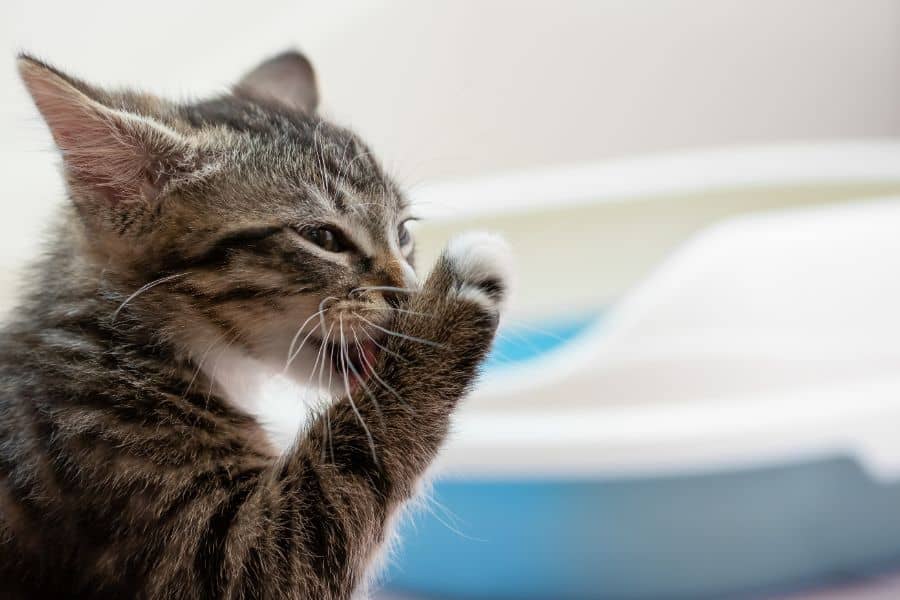
No one wants to live in a house that has been indiscriminately sprayed by cats. Their urine is concentrated with hormones, and packs a powerful punch of ammonia. And if they have a urinary tract infection, their urine can smell even worse.
Certainly, not all cats that pee outside the box mean to. There could be various explanations why they do it, and an equal amount of possible solutions to this rather smelly problem.
The Litter Box Basics
Cats benefit from having one litter box, plus one for backup. That means 2 boxes per cat, per household. Ideally, you might have one on each level of the house. Size matters; be sure they can easily enter/exit the box and turn around inside it. Some cats like covered boxes, others won’t enter a box with a hood.
Cats are quite finicky about their litter. Once they show success in the box, it’s best not to change anything. They depend on things in this department to stay the same. Sudden shifts in product, smell, texture, location, and more can have disastrous effects on their adherence to litter box etiquette.
Cats also detest when their box is dirty. Some won’t even enter a litter box if it smells, or if there are visible messes right on top. To get your cat to continue using the litter box and not, say, your carpeting, closets, or furniture, scoop the litter after each use, or at least once a day.
External Factors
Sometimes cats pee outside the box when they are scared of, freaked out by, or entirely disrupted by someone in the house. This could be a new pet, a new roommate or family member. It could be an entirely new house, nearby construction or traffic noises, and so on.
Similarly, the absence of their favorite person could explain behavioral changes, or the presence of outside cats that can be seen through windows could trigger them.
Always keep a close eye on your cat’s behavior and how external factors may be influencing them.
Internal Factors
Cats pee outside the box when they have any of the following medical conditions:
- Urinary tract infection
- Crystal or stone formation in the bladder
- Kidney or liver disease
- Hyperthyroidism
- Diabetes
- Cognitive decline
- Mobility issues
- Joint, nerve or muscle pain
When Your Cat Pees Outside the Box
If your cat pees outside the box, and you can’t pinpoint an external reason why, it’s worth having them examined. Staying in front of developing health conditions is always a good idea, and no cat should ever be in pain.
As always, if you have additional questions or concerns about your cat’s health and wellness, please let us know. Let your cat know that thinking inside the box can be a wonderful thing!





